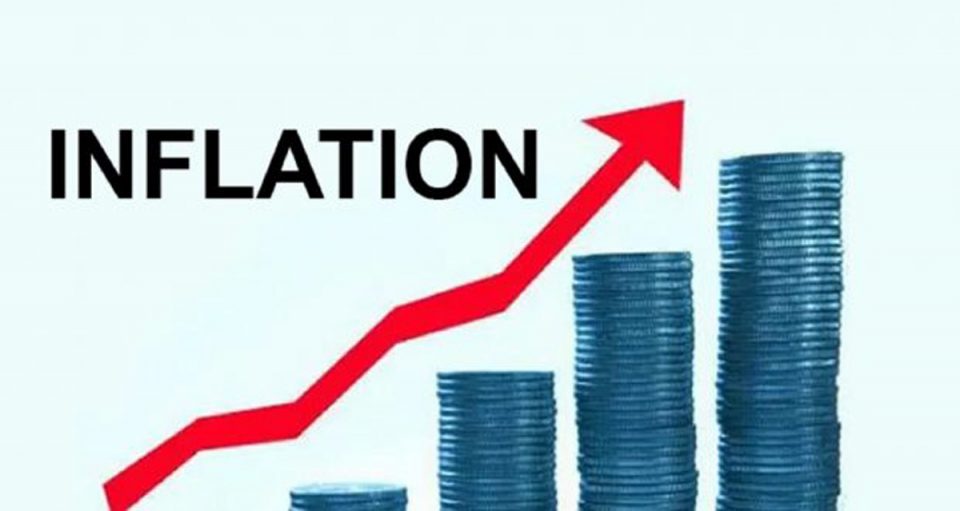Nigeria’s inflation rate surged to 34.60 per cent in November 2024, marking a 0.72 per cent increase from October’s 33.88 per cent and reflecting the highest level in 28 years.
This rise, attributed to escalating costs of goods and services, has raised concerns about potential further interest rate hikes by the Central Bank of Nigeria (CBN) to combat persistent inflationary pressures.
The National Bureau of Statistics (NBS) reported that this year’s inflation is 6.40 percentage points higher than in November 2023,
The CBN raised its benchmark interest rate to 27.50 percent, an increase of 25 basis points, following an inflation rate of 33 percent recorded in October.
That marked the sixth consecutive hike this year, aimed at combating persistent inflationary pressures affecting the economy.
At the last Monetary Policy Committee meeting, the apex bank had emphasised the need to stabilise prices and protect the naira amid rising dollar demand expected in December.
The NBS reported that the inflation rate rose to 34.60 per cent in November 2024, the highest in 28 years.
The increase from 33.88 per cent in October reflects a persistent upward trend driven predominantly by soaring food prices, which reached 39.93 per cent year-on-year in November.
The economic crisis is exacerbated by President Bola Tinubu’s controversial reforms, including the removal of petrol subsidies and the implementation of a floating exchange rate for the naira. These changes have significantly increased the cost of living, pushing many Nigerians into poverty and heightening food insecurity.
As food prices continue to rise, many citizens are struggling to afford basic necessities. The NBS indicates that food inflation has risen sharply due to factors like insecurity affecting agricultural output and adverse weather conditions disrupting farming activities.
Year-on-year, the headline inflation rate was 6.4 percentage points higher than the 28.2 per cent recorded in November 2023, highlighting a significant rise in prices over the past year.
However, on a month-to-month basis, the headline inflation rate for November was recorded at 2.638 per cent, slightly lower than the 2.64 per cent observed in October 2024.
The report also noted a steep rise in food prices, with the average annual food inflation rate for the twelve months ending November 2024 reaching 38.67 per cent, up by 11.58 percentage points from the 27.09 per cent recorded in November 2023.
Food inflation stood at 39.93% year-on-year, compared to 32.84% in November 2023. On a month-to-month basis, food inflation edged higher, rising from 2.94% in October to 2.98% in November 2024.
According to the NBS, the rise in food inflation was driven by price increases in staple goods such as yam, maize, rice, and vegetable oil. Meat, fish, and dairy products also contributed significantly, with items like dried fish, goat meat, and powdered milk witnessing sharp price hikes.
In terms of regional analysis, Bauchi (46.21%), Kebbi (42.41%), and Anambra (40.48%) recorded the highest year-on-year food inflation rates in November. Conversely, Delta (26.47%), Benue (28.98%), and Katsina (29.57%) had the lowest rates.
Rising inflation poses critical challenges for Nigeria’s economy, eroding household purchasing power and deepening poverty levels.
With food inflation at nearly 40 per cent, many Nigerians struggle to afford basic necessities, exacerbating food insecurity across the country. Businesses face rising costs of production, which often translate into higher consumer prices and reduced profitability.
Persistent inflation undermines the naira’s value, increasing the cost of imports and worsening trade imbalances. It also complicates monetary policy, limiting the Central Bank of Nigeria’s ability to stimulate growth or stabilise the economy.
As inflation continues to rise, both businesses and households remain vulnerable to economic hardship.
Reports suggest that approximately 172 million Nigerians cannot afford a healthy diet, highlighting the severe impact of inflation on daily life.
In response to these challenges, some Nigerians are turning to cheaper local food alternatives as a coping mechanism. However, the ongoing economic pressures, including high transportation costs and energy prices, make it increasingly difficult for families to meet their nutritional needs.
The central bank’s efforts to combat inflation through interest rate hikes have yet to yield significant relief. Analysts predict that inflation may remain elevated in the coming months unless structural issues such as insecurity and agricultural productivity are addressed.
